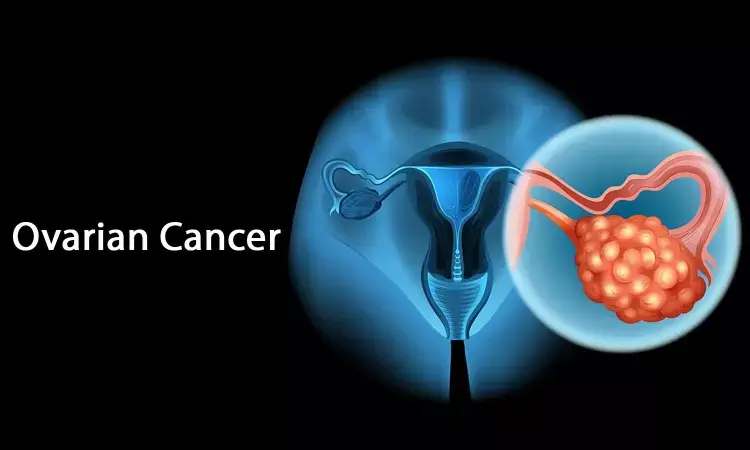- Home
- Medical news & Guidelines
- Anesthesiology
- Cardiology and CTVS
- Critical Care
- Dentistry
- Dermatology
- Diabetes and Endocrinology
- ENT
- Gastroenterology
- Medicine
- Nephrology
- Neurology
- Obstretics-Gynaecology
- Oncology
- Ophthalmology
- Orthopaedics
- Pediatrics-Neonatology
- Psychiatry
- Pulmonology
- Radiology
- Surgery
- Urology
- Laboratory Medicine
- Diet
- Nursing
- Paramedical
- Physiotherapy
- Health news
- Fact Check
- Bone Health Fact Check
- Brain Health Fact Check
- Cancer Related Fact Check
- Child Care Fact Check
- Dental and oral health fact check
- Diabetes and metabolic health fact check
- Diet and Nutrition Fact Check
- Eye and ENT Care Fact Check
- Fitness fact check
- Gut health fact check
- Heart health fact check
- Kidney health fact check
- Medical education fact check
- Men's health fact check
- Respiratory fact check
- Skin and hair care fact check
- Vaccine and Immunization fact check
- Women's health fact check
- AYUSH
- State News
- Andaman and Nicobar Islands
- Andhra Pradesh
- Arunachal Pradesh
- Assam
- Bihar
- Chandigarh
- Chattisgarh
- Dadra and Nagar Haveli
- Daman and Diu
- Delhi
- Goa
- Gujarat
- Haryana
- Himachal Pradesh
- Jammu & Kashmir
- Jharkhand
- Karnataka
- Kerala
- Ladakh
- Lakshadweep
- Madhya Pradesh
- Maharashtra
- Manipur
- Meghalaya
- Mizoram
- Nagaland
- Odisha
- Puducherry
- Punjab
- Rajasthan
- Sikkim
- Tamil Nadu
- Telangana
- Tripura
- Uttar Pradesh
- Uttrakhand
- West Bengal
- Medical Education
- Industry
Bilateral Oophorectomy Could Increase a Woman's Risk for Dementia

CLEVELAND, Ohio - Despite the advantage of an oophorectomy reducing the threat of ovarian cancer, it is not without risk. Removing the ovaries causes premature menopause and hormone disruption that can lead to heart disease, osteoporosis, depression, and other problems. A new study adds to the literature and shows an increased risk of dementia with oophorectomy. Study results are published online today in Menopause, the journal of The North American Menopause Society (NAMS).
Women are disproportionately affected by dementia, with a 55% higher risk from age 65 years onward, compared with men. This sex difference is not fully explained by the fact that women, on average, live longer than men.
Estrogen has been consistently identified as a potential mechanism underlying higher rates of dementia in women. That's why common interventions that permanently alter sex steroid exposure, such as oophorectomy, are suspected of representing a female-specific risk factor of dementia. Bilateral oophorectomy (the removal of both ovaries) is sometimes performed in conjunction with hysterectomy to help prevent ovarian cancer in women with a high inherited risk.
Several earlier studies investigated the association between bilateral oophorectomy and dementia but showed inconsistent findings. In this new study involving nearly 25,000 women, the goal was not to simply investigate the prospective association between oophorectomy and the rate of incident dementia but also to determine whether the risk was affected by age at the time of surgery, hysterectomy, or use of hormone therapy.
On the basis of their results, the researchers concluded that bilateral, but not unilateral, oophorectomy was associated with an increased risk of dementia. However, they were not able to show whether this association was conditional with hysterectomy or hormone therapy use.
Study results are published in the article "Oophorectomy and rate of dementia: a prospective cohort study."
"These results are consistent with findings of prior studies showing a link between oophorectomy and dementia. The statistical power of the study was limited, which may explain the lack of effect of age or hormone therapy use on this association. Given the robust body of evidence suggesting potential long-term adverse effects associated with oophorectomy before the average age of menopause, risk-reducing oophorectomy should be limited to those women with an inherited high risk for cancer," says Dr. Stephanie Faubion, NAMS medical director.
Hina Zahid Joined Medical Dialogue in 2017 with a passion to work as a Reporter. She coordinates with various national and international journals and association and covers all the stories related to Medical guidelines, Medical Journals, rare medical surgeries as well as all the updates in the medical field. Email: editorial@medicaldialogues.in. Contact no. 011-43720751
Dr Kamal Kant Kohli-MBBS, DTCD- a chest specialist with more than 30 years of practice and a flair for writing clinical articles, Dr Kamal Kant Kohli joined Medical Dialogues as a Chief Editor of Medical News. Besides writing articles, as an editor, he proofreads and verifies all the medical content published on Medical Dialogues including those coming from journals, studies,medical conferences,guidelines etc. Email: drkohli@medicaldialogues.in. Contact no. 011-43720751


